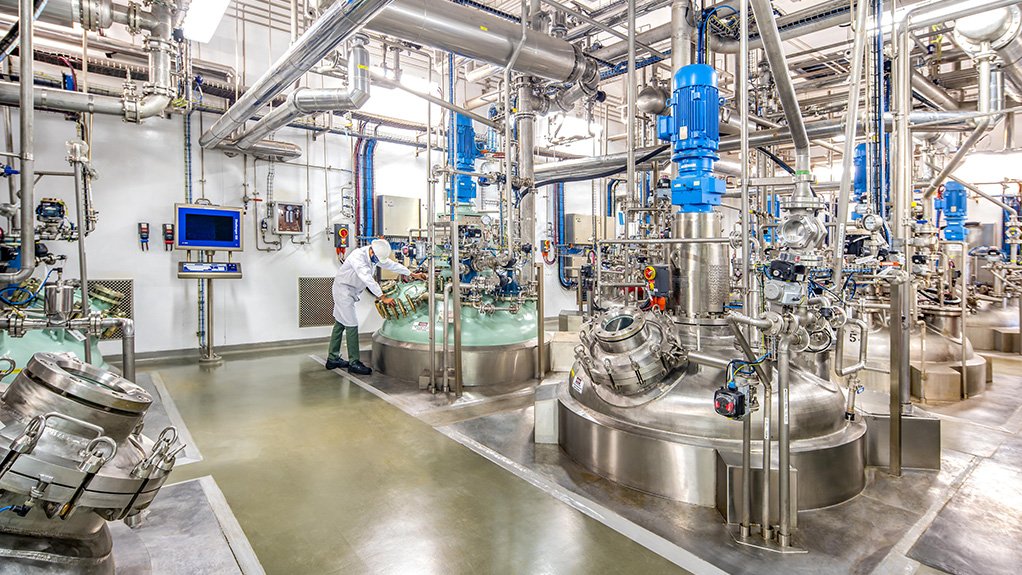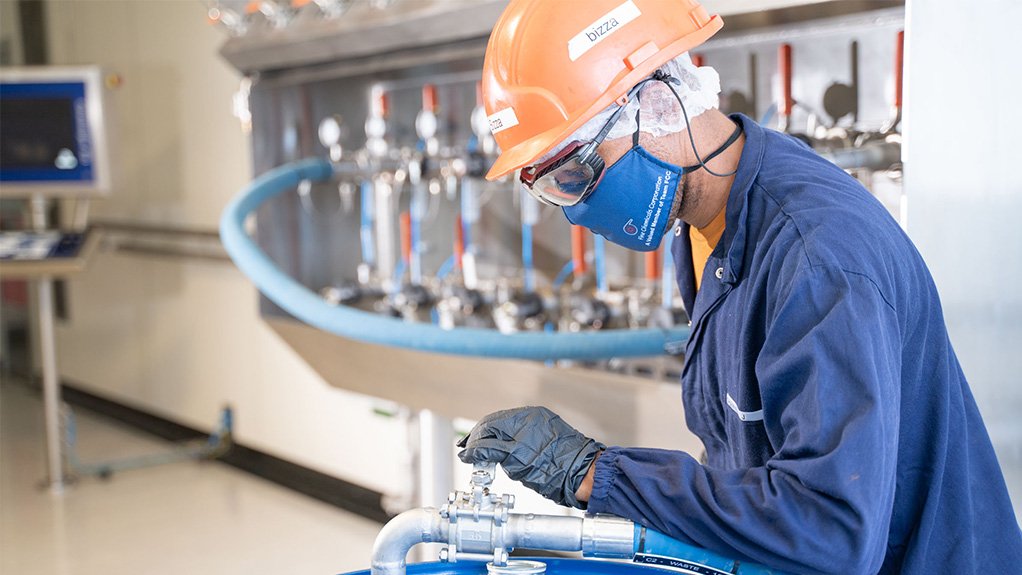Owing to the highly solvent-intensive processes associated with active pharmaceuticals ingredients (API) manufacturing, a single batch of APIs can use and generate significant amounts of waste. These solvents are also costly to procure and dispose of.
API manufacturers continuously investigate and implement suitable alternative materials that are safer for handlers and do not have detrimental environmental effects.
Pharmaceutical corporation Fine Chemicals Corporation GM Hilton Mentor says the disposal of APIs is complex, and sourcing suitable disposal methods and service providers can pose certain challenges.
Therefore, it is beneficial to establish ways of recycling and reusing solvents in production processes.
Mentor says efficient processes result in higher yields and less waste, and also contribute towards a lower carbon footprint.
“Continuous process improvements and sustainability go hand in hand.”
Mentor explains that the chemical manufacturing sector has to contend with unique health and safety challenges such as more fire risks and higher levels of product containment requirements, which result in unique operator-protection requirements.
Further, as pharmaceutical raw materials and finished goods are hazardous, they are subjected to specialised transport regulations throughout the supply chain.
Stringent quality systems apply because of the specialised nature of the product and its being consumed by either humans or animals.
Therefore, changes or deviations at any time during the manufacturing process are subject to very onerous risk assessments and regulatory pathways, he adds.
“There are many highly hazardous operations and conditions in the API environment and it’s critical for operators to understand these risks and also why mitigation measures have been implemented.”
Mentor explains that Fine Chemicals Corporation aims to build an active safety culture within which employees are encouraged to speak up and report unsafe conditions and “near misses”.
He asserts that safety is viewed as being “everyone’s responsibility”.
“Leaders lead by example through taking action to remove identified obstacles and closing the loop with employees who have reported them.”
The company’s Serious Injury or Fatality programme emphasises identifying and reducing incidents that could potentially result in serious consequences, serious injuries or fatalities on site.
The company also implemented Gemba Walks – a Japanese concept that entails a workplace walkthrough aimed at observing employees, enquiring about their tasks and identifying productivity gains.
“These walks, together with our 5S – sort, set in order, shine, standardise and sustain methodology – Initiative, aim to improve frontline worker engagement and generate visible leadership,” says Mentor.
Considerations Throughout Innovation
Innovation in the pharmaceutical industry is increasing at a rapid rate, which results in many new “molecules of interest” as developers assess future patient and clinical needs.
Mentor says selecting which molecules to develop is significant; therefore, developers take into consideration various factors, including new or existing generics, the applicable therapeutic category, and at which stage of clinical-trial development participation will start.
“Pharmaceutical development is a lengthy process, with many ‘gates’ to consider throughout the process, from laboratory to commercial production, which could take three to five years,” he explains.
During the development, important considerations include deciding which synthetic route and manufacturing process to develop, whether production steps are economically or scientifically viable, and ensuring that customer requirements and expectations are met.
Sustainability in a VUCA World
Mentor says the world is Volatile, Uncertain, Complex and Ambiguous (VUCA), resulting in an ever-changing macro environment within which companies operate.
This state is largely owing to geopolitical tensions, as well as uncertain and unstable economies in developed and developing countries.
He adds that the impact of the prevailing VUCA world results in tangible inflation plus increases in manufacturing input costs, particularly in relation to energy, supply chains and labour.
Further, there are increasing reliability concerns around global supply chains placing stable raw material supply at risk, along with increased reluctance downstream in the value chain to accept the passing down of price increases.
South African manufacturers also have to contend with additional challenges. This includes a shortage of specific, highly experienced technical skills, as well as the security of utilities and services such as the reliable supply of water and electricity.
He adds that, to combat or mitigate these challenges, supply chain operations need to be increasingly resilient and agile while adopting a continuous improvement approach to every metric governing performance.
Mentor elaborates that it is important to quantify how well businesses are prepared to ensure exceptional customer service. This should also be evaluated against leading industry benchmarks for orders that are delivered on time, in full, and meet the highest quality standards at a competitive price.
It is essential that the business provides exceptional service embedded within a foundation of safety and quality standards, which is achieved when harnessing the full potential of the team on site.
“Only businesses that are renowned for a high performance culture will produce industry-leading results in a sustainable manner,” he concludes.
Edited by: Zandile Mavuso
Creamer Media Senior Deputy Editor: Features
EMAIL THIS ARTICLE SAVE THIS ARTICLE
ARTICLE ENQUIRY
To subscribe email subscriptions@creamermedia.co.za or click here
To advertise email advertising@creamermedia.co.za or click here















